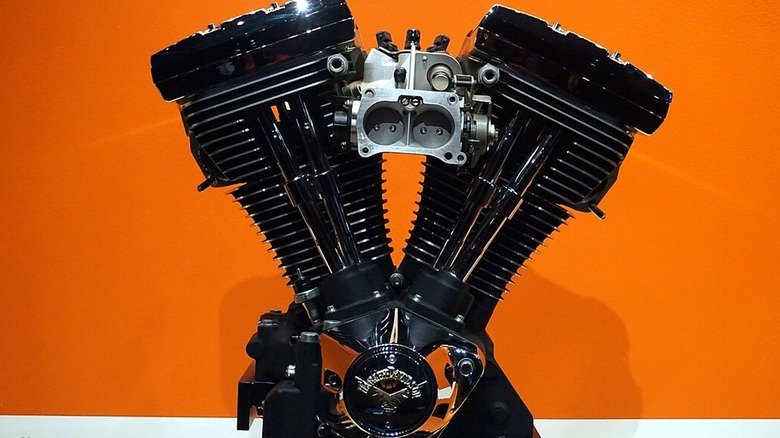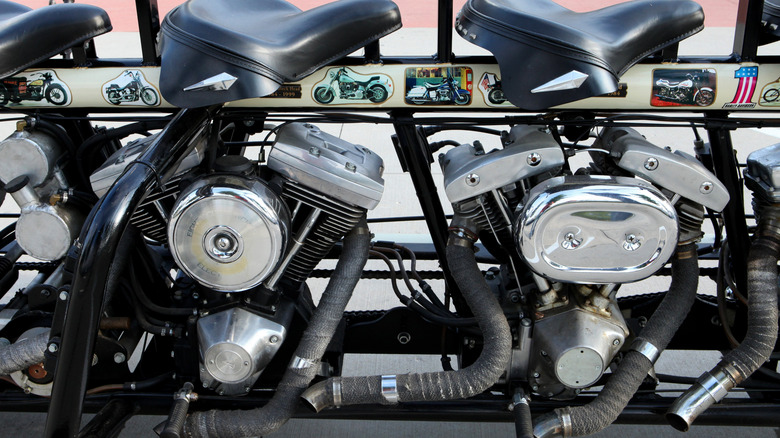What Years Did Harley-Davidson Make The Evolution Engine?
Harley-Davidson endures as one of the biggest names in motorcycles, which didn't come easily for the company. After all, there's more to selling motorcycles than plucking them out of thin air and getting them to the masses. There's conceptualization, engineering, aesthetic design, testing, and more, making it an overall labor-intensive process from start to finish. Along the way, those involved in constructing Harleys have innovated in ways big and small, especially in terms of the components that allow them to run. Thus, Harley boasts quite the impressive assortment of motorcycle engines.
Throughout the decades, Harley-Davidson fans have seen all kinds of engines come and go, from the Shovelhead V-Twin to the Nova V4. One of the most notable is the Evolution engine, which hit the market for the first time in 1984. Defined by its 45-degree V-twin setup, aluminum construction, and strong air-cooling system, this engine became quite a hit in the Harley-Davidson world.
Unfortunately, despite its popularity and widespread use, it was ultimately retired just over a decade and a half into its tenure. They were first discontinued for Baggers in 1998, with those for Softail and FXR models bidding riders farewell in 1999 and 2000, respectively. At least it lasted longer than the Harley engine made specifically for lawn mowers. While the Evolution engine has been out of commission for some time, its legacy lives on well beyond its end.
[Featured image by Michael Barera via Wikimedia Commons | Cropped and scaled | CC BY-SA 4.0]
Many hold the Evolution engine in high regard
Despite the popularity and reliability of the Evolution engine, Harley-Davidson's consistent innovation led to its end. After replacing the Shovelhead engine with its rollout in the mid-1980s, the Evolution was later surpassed by the Twin Cam, which hit the streets in 1998 before concluding its run in 2017. Ironically, Harley's engine design evolved, leaving the Evolution outdated by the start of the new millennium. Still, there's no denying that it made the most of its time on the market, with it being remembered fondly by many a Harley-Davidson enthusiast 40 years after its debut.
In the modern era, Evolution models are still regarded as reliable, long-lasting engines. "Love mine and I've had it since the 80s. I've got zero desire for a Twin Cam or M8," commented Redditor u/SpamFriedMice, applauding the Evolution's durability and easy maintenance. A now-deleted user cited their love for the Evolution's sound, while u/troymoeffinstone described it as packing in retro coolness with simple upkeep. Commenting on a friend's bike, u/Ol_Grey_Ghost added, "A little over 100,000 miles on it and other than regular maintenance and normal wear and tear, he has never had a major engine issue."
The Harley-Davidson Evolution engine isn't touted as the most powerful or the be-all and end-all of Harley engines, but it has more than earned its place in history and a spot among the best Harley engines ever made. Even as its time in the spotlight slips further into the past, surely it will continue to be celebrated by Harley fans for its durability, sound, repair accessibility, and more.

